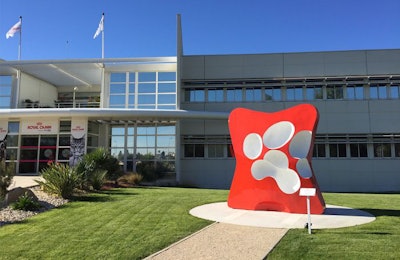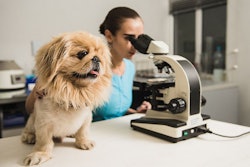
Adapted from a press release:
Royal Canin has committed to become certified carbon neutral by 2025 with its first product range aiming to be certified carbon neutral by 2022.
Businesses have an important role in supporting the Paris Agreement to limit global temperature increases. Royal Canin, Mars’ largest brand, will achieve carbon neutrality by prioritizing meaningful action on its carbon footprint of its by investing in certified carbon credits.
Royal Canin plans to use the PAS 2060 standard for carbon neutrality, a robust and internationally recognized standard, and the brand will report transparently and regularly on its journey.
“As experts in cat and dog nutrition, we have been guided by science for the last 50 years,” said Loic Moutault, President of Royal Canin. “It is science-led initiatives and decisive action, not just ambition, which will help us hit our 2025 climate target."
Delivering carbon neutral
The four action areas Royal Caninwill take to be carbon neutral by 2025 are as follows:
1. Transitioning to renewable electricity: This work has been underway across Royal Canin for two decades and 72% of the business’ electricity comes from renewable sources. The ambition is to achieve 100% renewable electricity across all factories and offices while reducing energy consumption overall.
2. Procuring sustainable ingredients: Three quarters of Royal Canin’s carbon footprint comes from its ingredient supply chains. Hence the brand seeks to reduce its GHG emissions through the reformulation of its products, including switching to low-carbon intensity ingredients without compromising quality or safety. Royal Canin. Key suppliers will be invited to join the Mars Incorporated’s Pledge for Planet initiative, which supports them in identifying their footprint, setting science-based targets and implementing plans to drive reductions.
3. Reducing waste and boosting circularity: In Royal Canin efforts are underway to significantly boost recyclability, compostability and the use of reusable packaging in alignment with Mars’s ambitious packaging sustainability goals. By 2022 a mono-material plastic packaging will be introduced which will be recyclable where the infrastructure exists.
4. Climate-smart business transformation: Royal Canin steps to integrate climate-smart management practices include:
- Senior executive pay and remuneration will be linked to climate actions and delivering emissions cuts.
- Setting an internal price on carbon to generate resources and drive action to reduce emissions.
- A science-based methodology that enables Royal Canin to measure the carbon footprint of its products worldwide, enabling climate-smart decision-making regarding formulation, ingredients, raw materials and logistics.
- The rollout of an Associate sustainability engagement, awareness and upskilling ‘Go Green’ program to 100% of our offices and sites by the end of 2025.
- Creating a work environment where innovation and internal and external collaboration is significantly mobilized to drive creativity in rising to the climate challenge.
For any residual emissions that Royal Canin cannot completely remove or reduce, the brand will invest in high-quality, removals – based certified carbon credits. The use of removals–based credits is aligned with the SBTi (Science Based Targets) Net Zero Foundations paper.
“We consider carbon neutrality a necessity for future generations and it is our responsibility to contribute to this effort," said Fabrice Mathieu, Global Sustainability Director at Royal Canin. “ We know this journey won’t be easy, but we’re committed to taking action to reduce our footprint and making the investments needed together with partners across our value chain worldwide.”
Read more about pet food companies sustainability efforts
Darling Ingredients aims to reduce water, energy use 5%
Darling Ingredients Inc. recently posted the company's updated global Environmental, Social, and Governance Report and highlighted its 2025 climate change targets designed to enable company growth while improving sustainability performance. Darling's global strategy aligns the objectives of its Corporate Social Responsibility pillars with specific Sustainable Development Goals as set out by the United Nations Global Compact. The company continues to actively manage toward its short-term global targets to reduce its water and energy intensity by 5% from 2020 to 2025. The company is aggressively boosting its production of renewable energy and expects in 2022 to achieve an increase in production of over 150% from 2019. The new ESG Report illustrates initiatives to achieve the short-term targets and demonstrates a developing mid- and long-term strategic roadmap to reach the ambitious net zero GHG emissions and sustainable water use goals by 2050 within Darling's own operations.
GEA announces goal of net-zero gas emissions by 2040
GEA Group AG announces a comprehensive climate strategy. With the corresponding climate targets, GEA is making a clear commitment to achieve net-zero greenhouse gas (GHG) emissions along its entire value chain by 2040. The company has submitted its net-zero commitment and 2030 interim targets to the Science Based Targets initiative (SBTi), the globally recognized, independent body for reviewing climate targets. Validation by SBTi is expected in the second half of 2021, confirming GEA’s targets are aligned with the latest climate science and are effectively contributing to the 1.5 degrees Celsius target of the Paris Agreement.

















